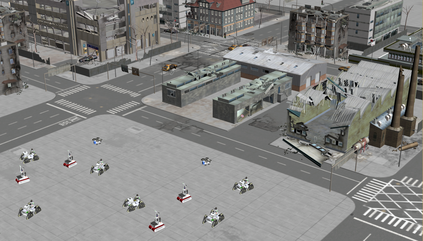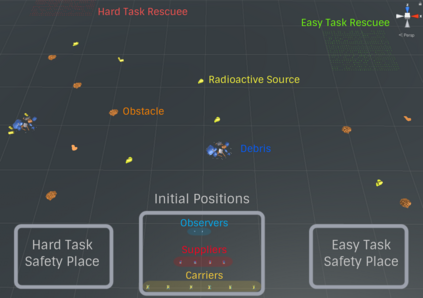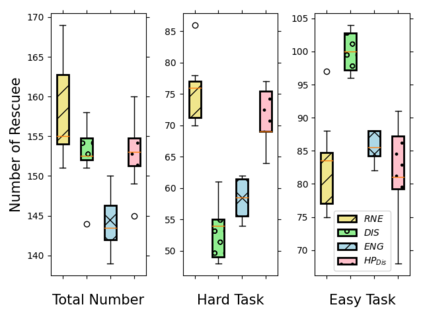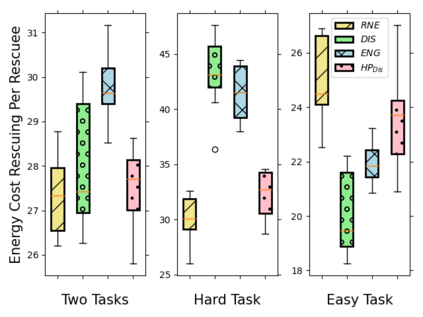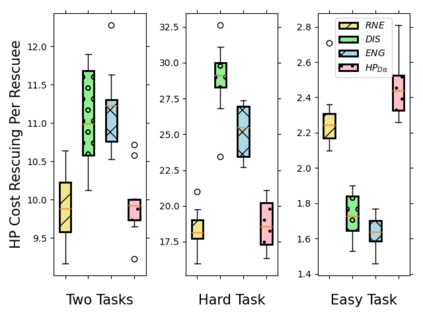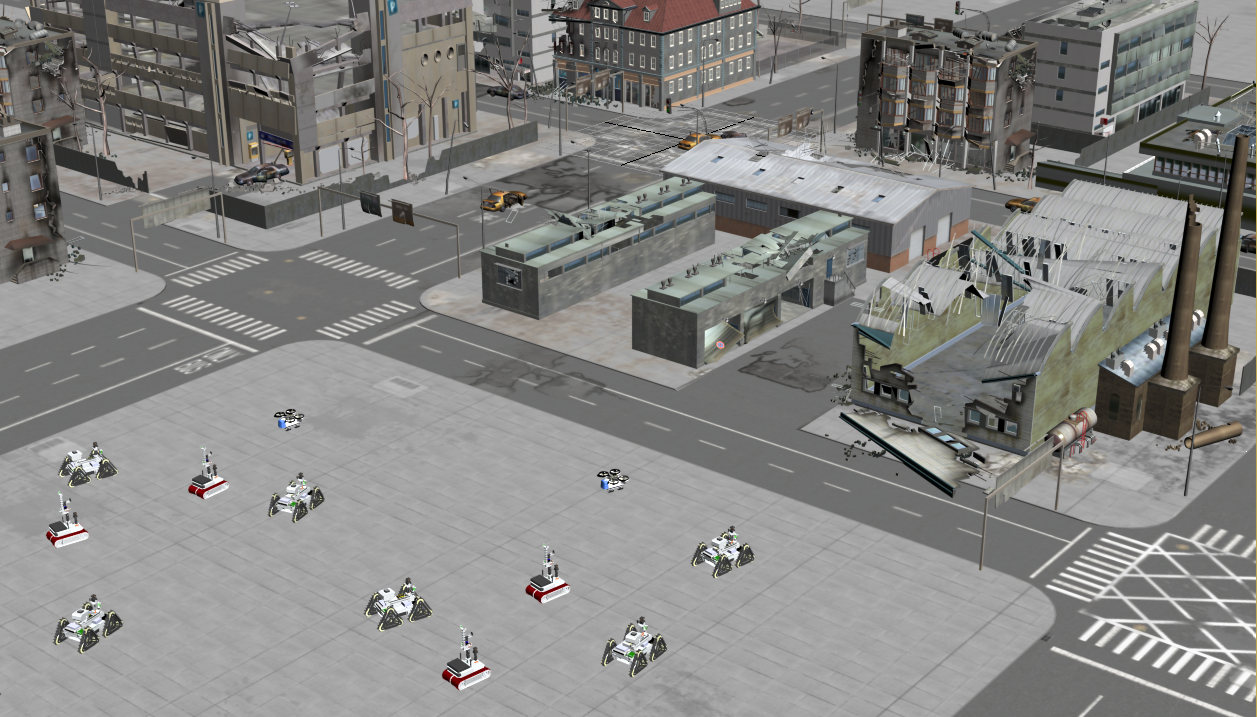Cooperation in multi-agent and multi-robot systems can help agents build various formations, shapes, and patterns presenting corresponding functions and purposes adapting to different situations. Relationships between agents such as their spatial proximity and functional similarities could play a crucial role in cooperation between agents. Trust level between agents is an essential factor in evaluating their relationships' reliability and stability, much as people do. This paper proposes a new model called Relative Needs Entropy (RNE) to assess trust between robotic agents. RNE measures the distance of needs distribution between individual agents or groups of agents. To exemplify its utility, we implement and demonstrate our trust model through experiments simulating a heterogeneous multi-robot grouping task in a persistent urban search and rescue mission consisting of tasks at two levels of difficulty. The results suggest that RNE trust-Based grouping of robots can achieve better performance and adaptability for diverse task execution compared to the state-of-the-art energy-based or distance-based grouping models.
翻译:多试剂和多机器人系统的合作可以帮助代理商建立各种结构、形状和模式,显示相应的功能和目的,以适应不同情况。代理商之间的关系,如空间相近性和功能相似性,可以在代理商之间的合作中发挥关键作用。代理商之间的信任水平是评价其关系可靠性和稳定性的重要因素,与人一样。本文件提出了一个新的模型,称为相对需要 Entropy(RNE),用以评估机器人代理商之间的信任。RNE衡量个体代理商或代理商团体之间需求分布的距离。为展示其效用,我们通过实验模拟由两种困难级别的任务组成的长期城市搜索和救援任务中的多元多机器人组合任务来实施和展示我们的信任模式。结果显示,RNE基于信任的机器人组合可以实现更好的性能和适应性,与最先进的基于能源或远程的组合模式相比,执行不同的任务。

